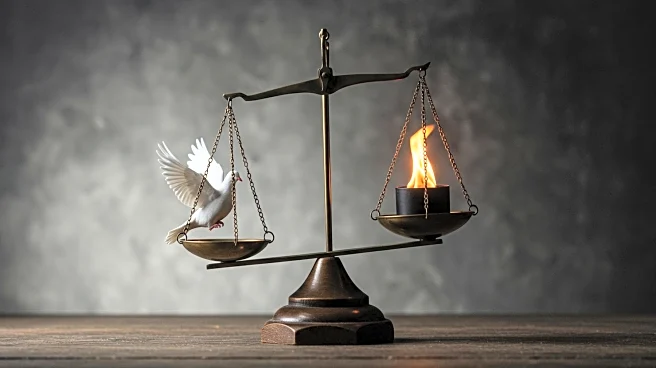What's Happening?
Amnesty International UK has faced criticism for its statement claiming that the journalist death toll in Gaza is higher than in any other modern conflict. This assertion has been challenged for not acknowledging the deaths of Jewish journalists during the Holocaust, as documented by Yad Vashem. The controversy arose after a solidarity march was held at Utrecht Central Station in the Netherlands, where hundreds gathered to honor Al Jazeera journalists killed in Gaza, including Anas al-Sharif.
Why It's Important?
The criticism of Amnesty UK highlights the sensitivity and complexity surrounding historical comparisons, especially involving the Holocaust. Such statements can impact public perception and discourse on current conflicts, potentially influencing international relations and media narratives. The backlash underscores the importance of accurate historical representation and the potential consequences of perceived inaccuracies in advocacy and reporting. This incident may affect Amnesty International's credibility and its ability to influence policy and public opinion on human rights issues.
What's Next?
Amnesty International may need to address the criticism and clarify its position to mitigate potential damage to its reputation. This could involve revising its statements or engaging with historians and experts to ensure accurate representation of historical events. The organization might also face increased scrutiny from stakeholders and the public, prompting a review of its communication strategies. Additionally, this controversy could lead to broader discussions on the role of advocacy groups in shaping narratives around historical and current events.
Beyond the Headlines
The incident raises questions about the ethical responsibilities of advocacy organizations in making historical comparisons. It highlights the need for careful consideration of the implications such statements have on collective memory and cultural sensitivity. This situation may prompt a reevaluation of how historical events are used in contemporary advocacy, potentially influencing future approaches to human rights campaigns.











